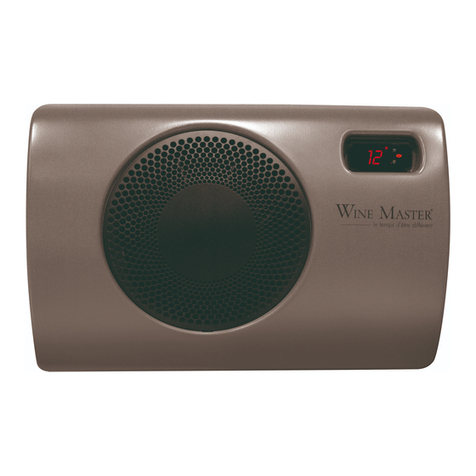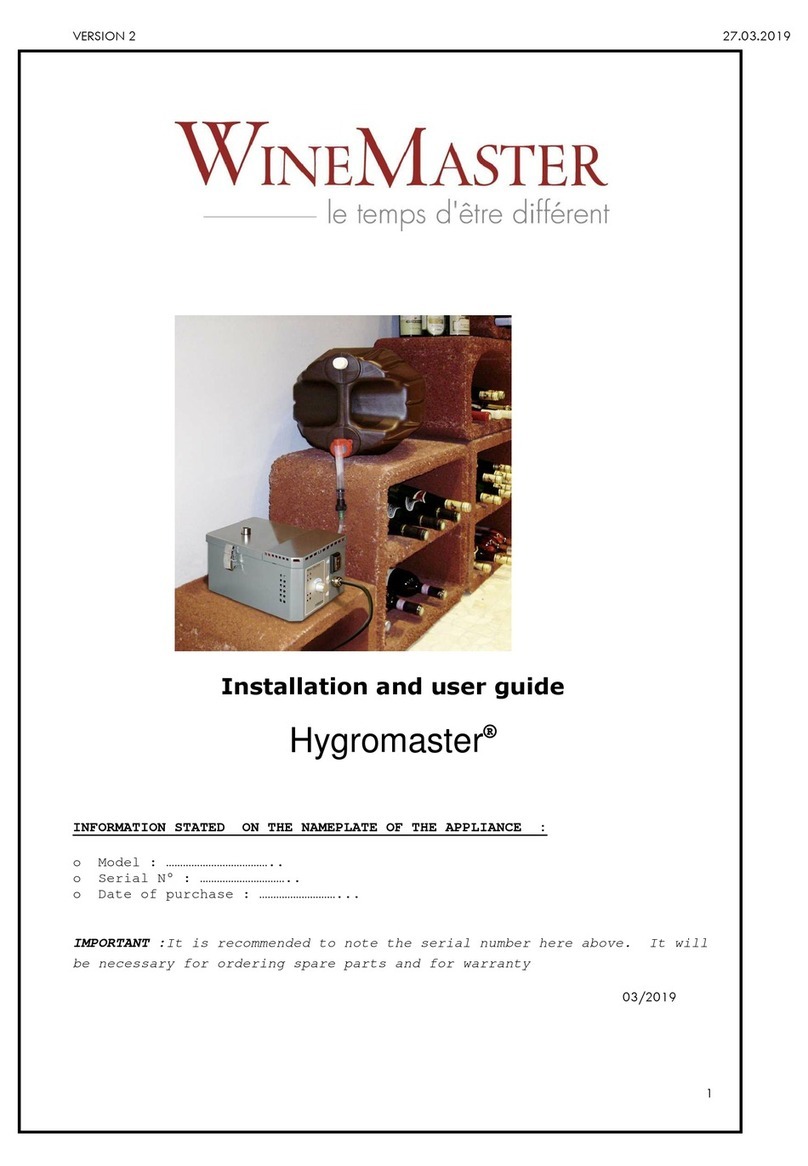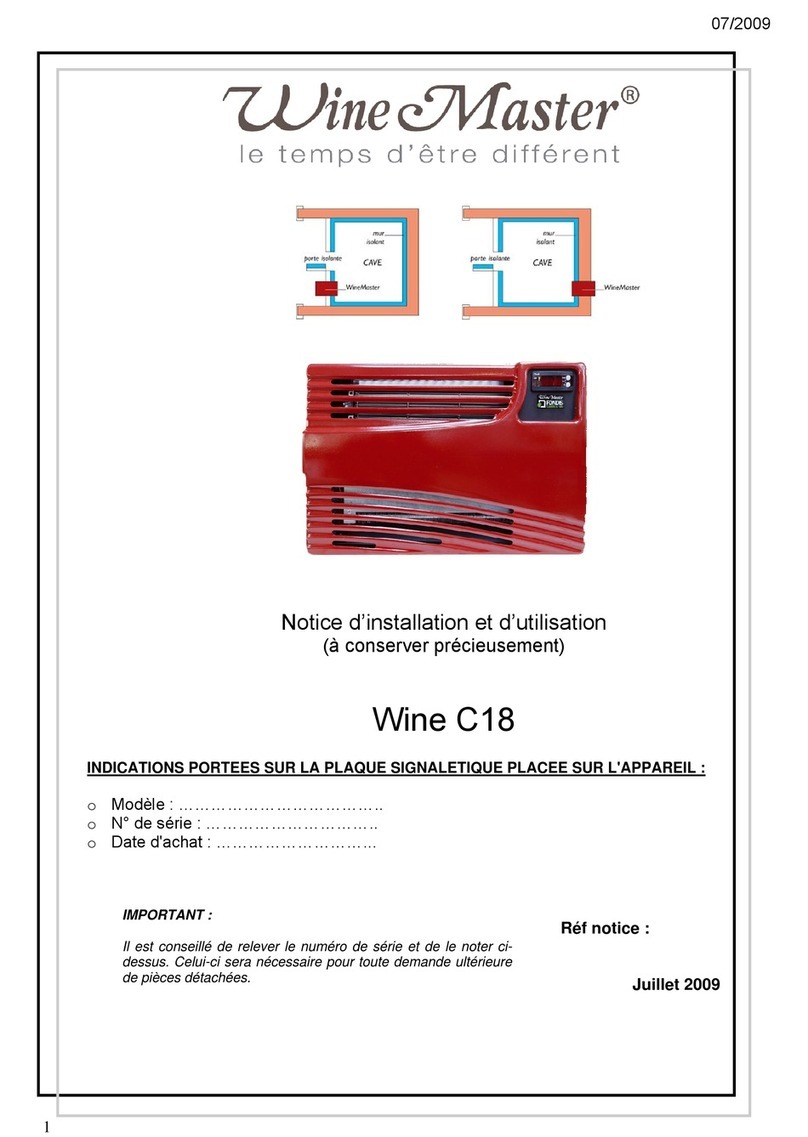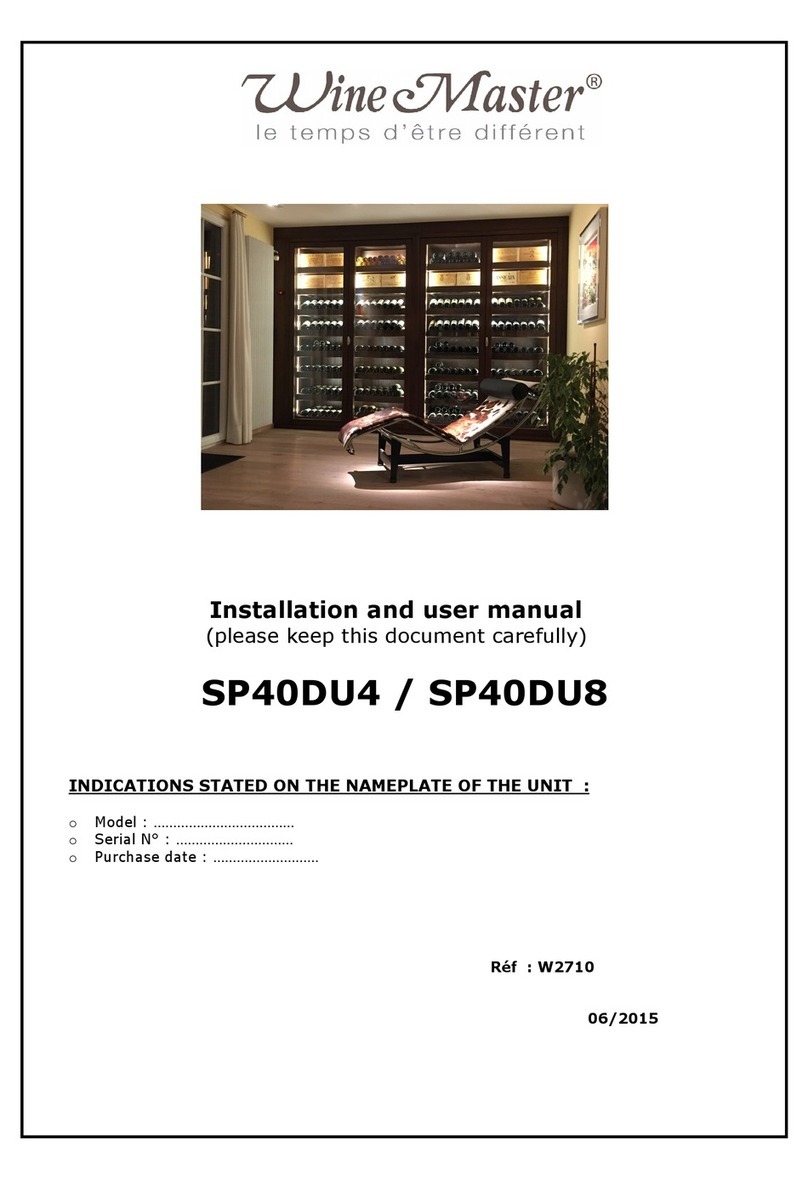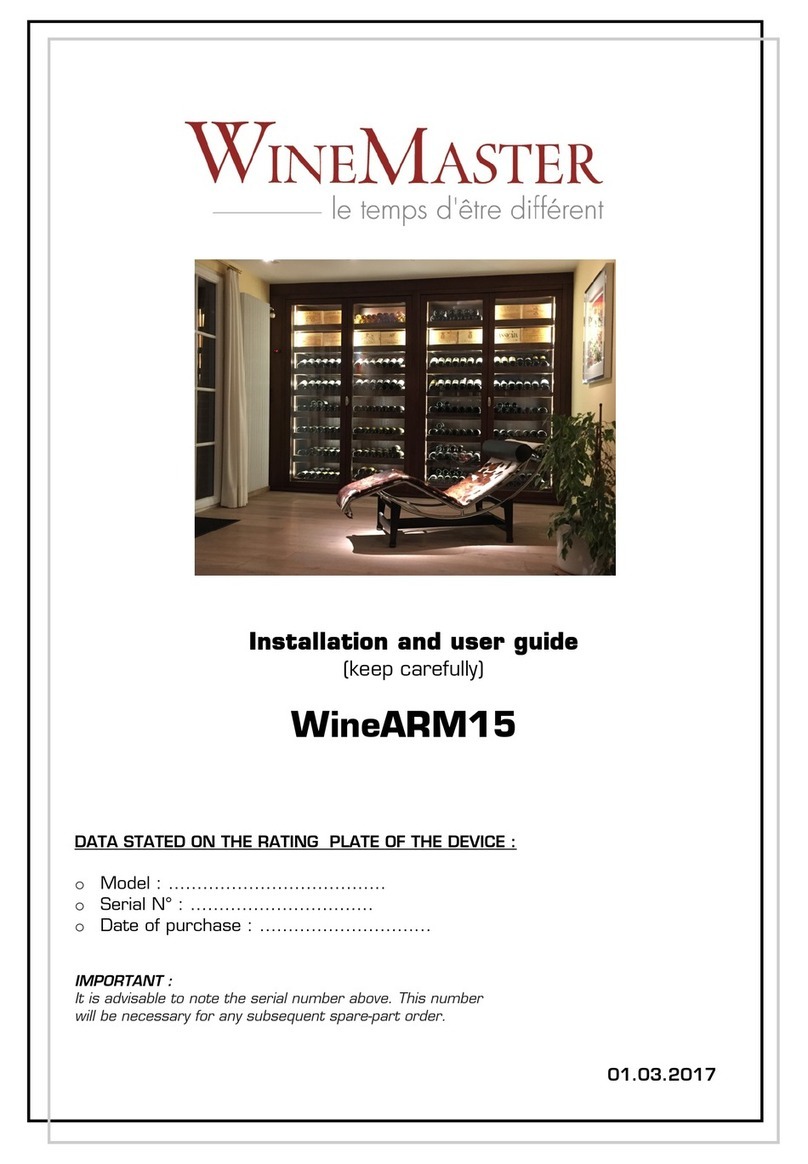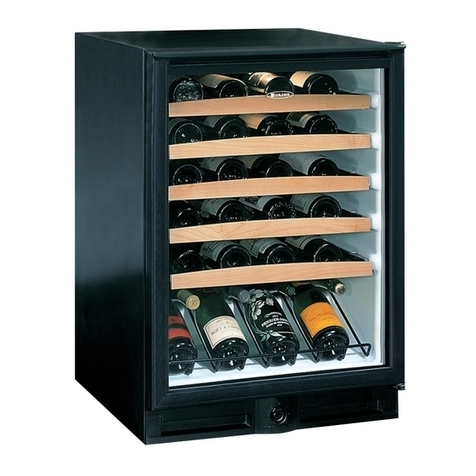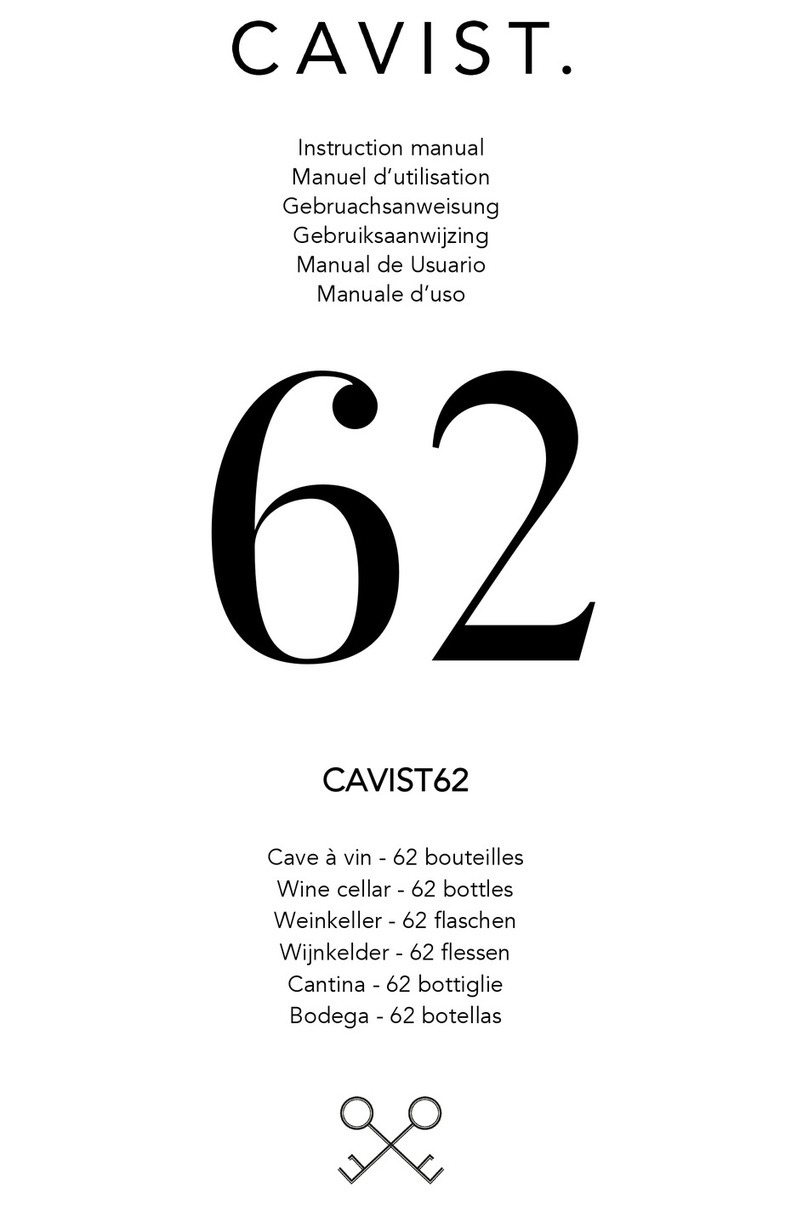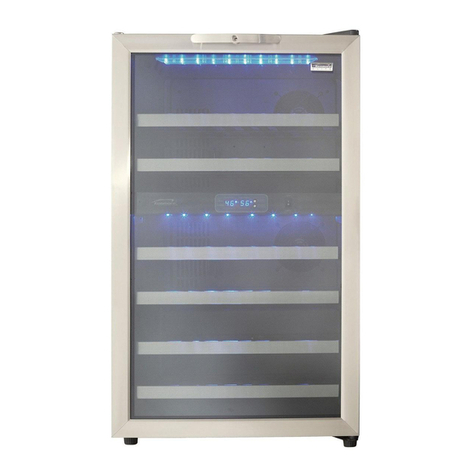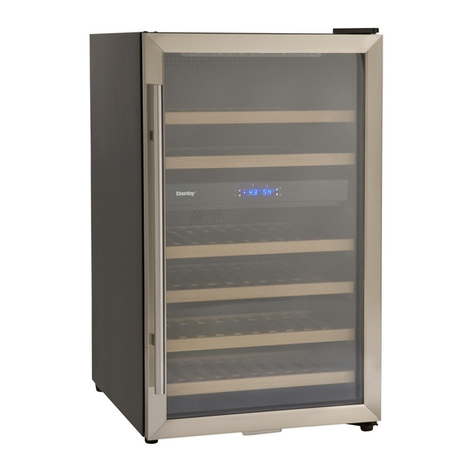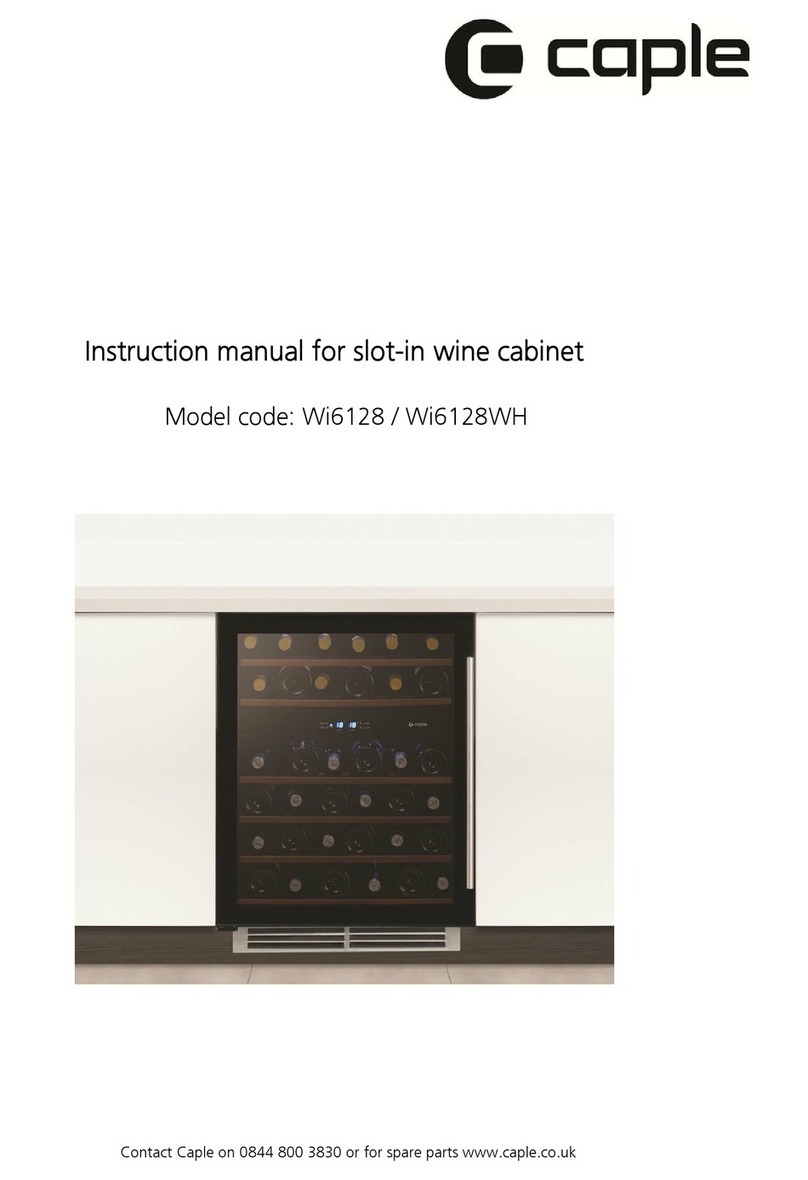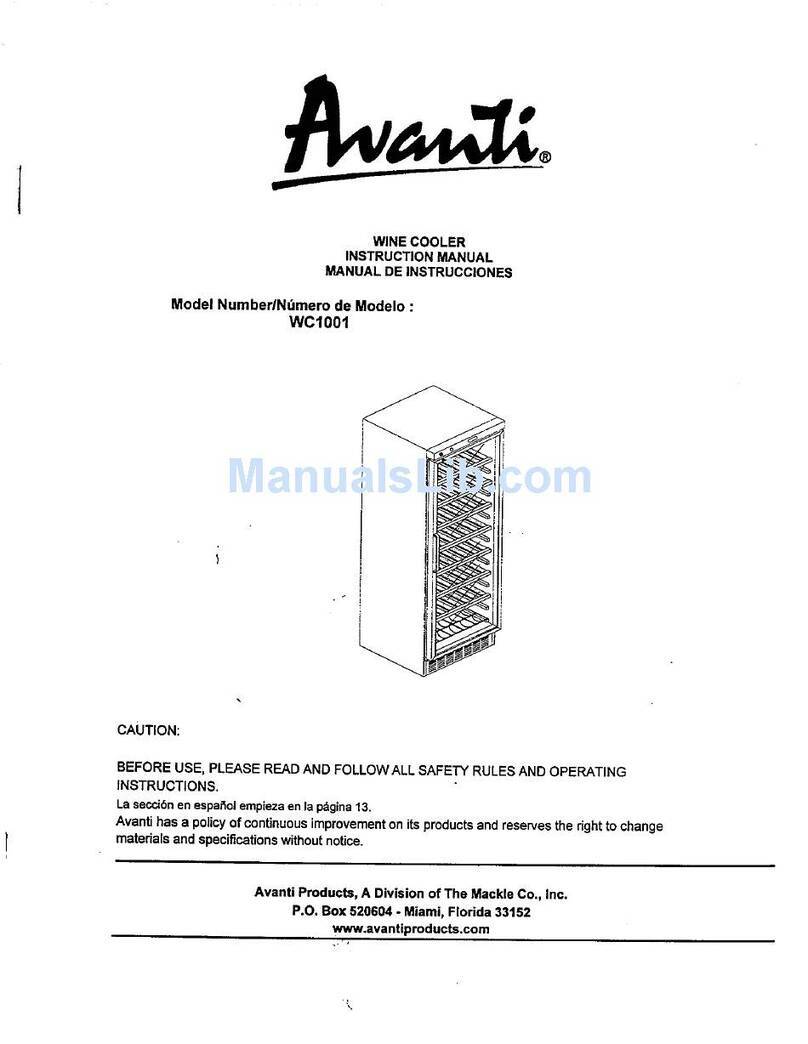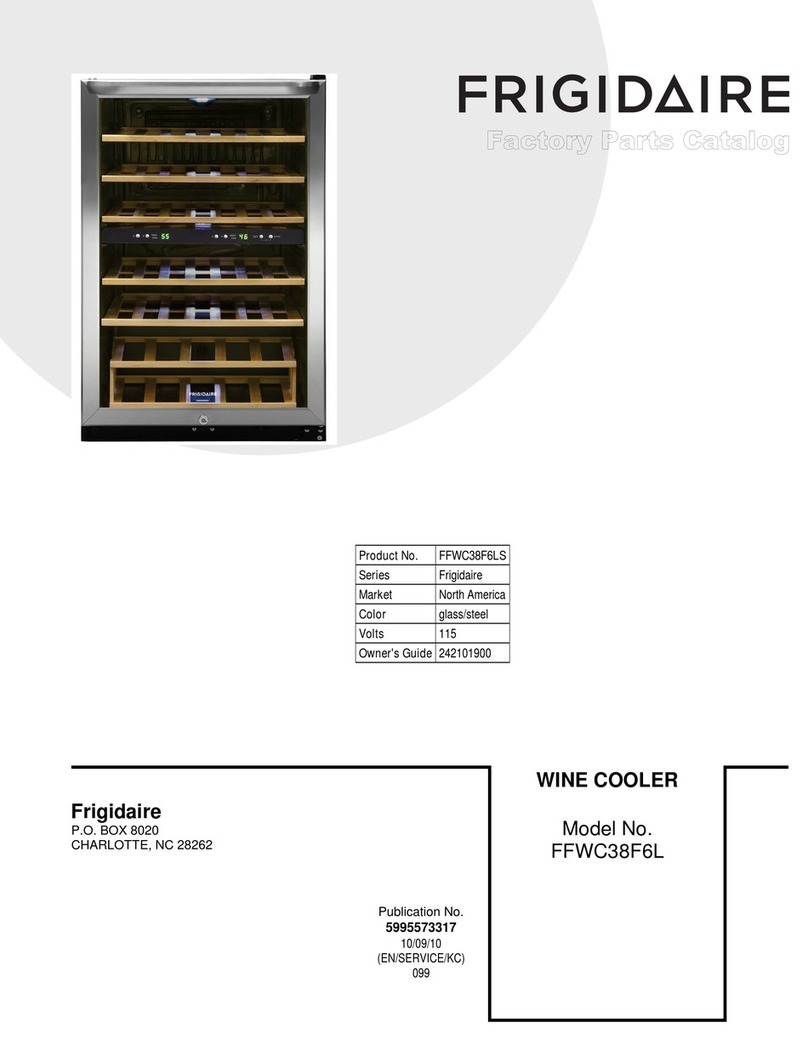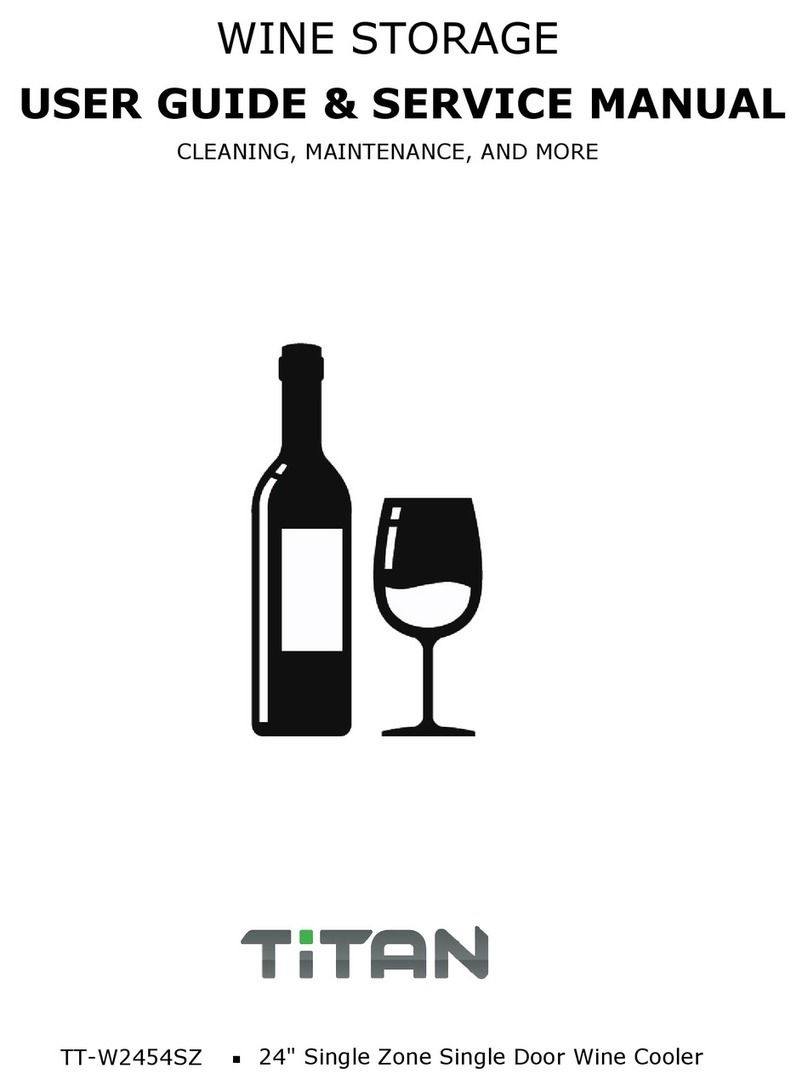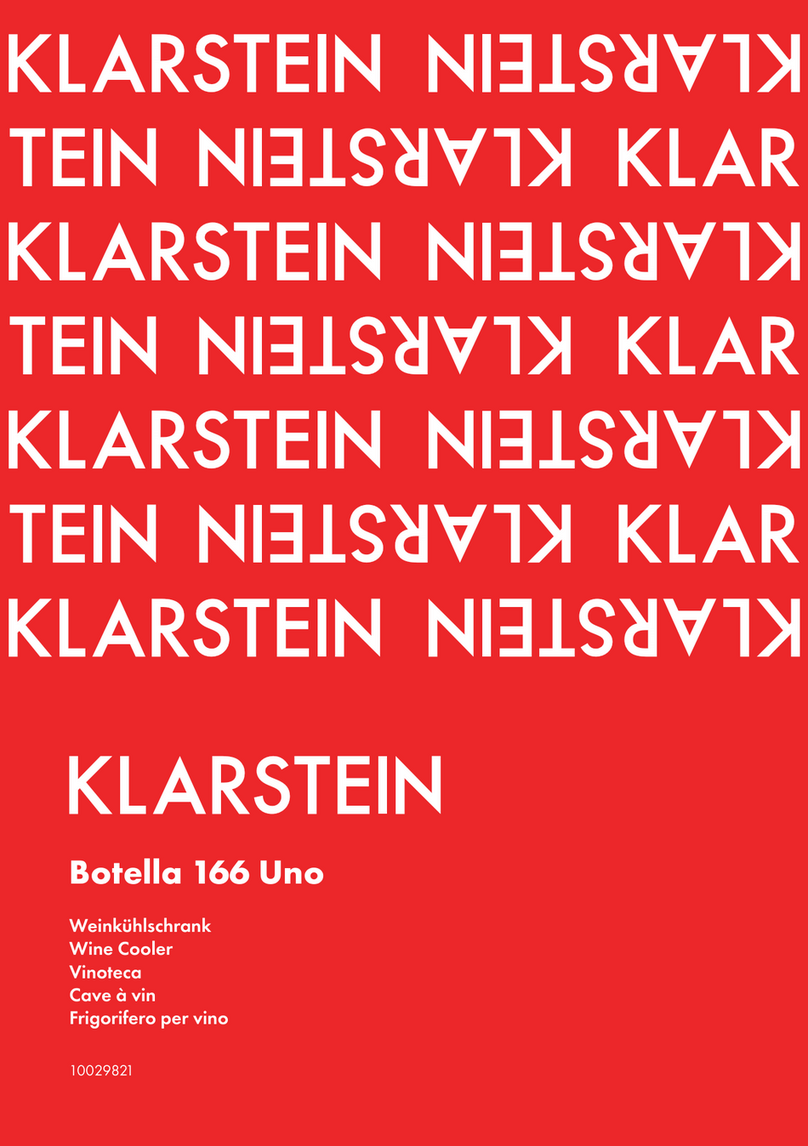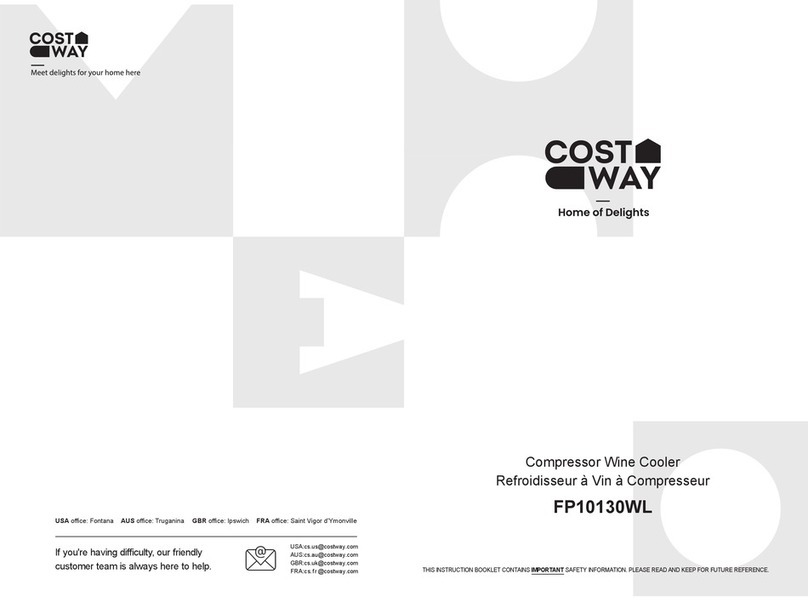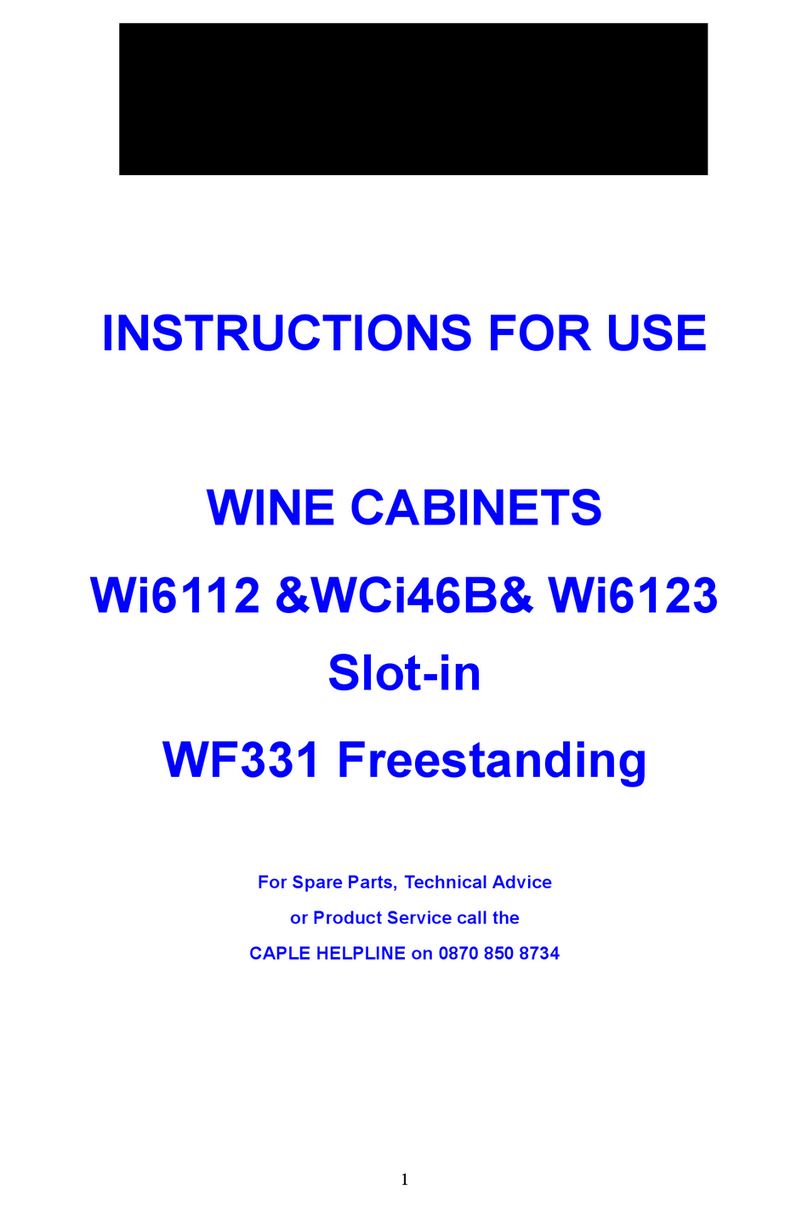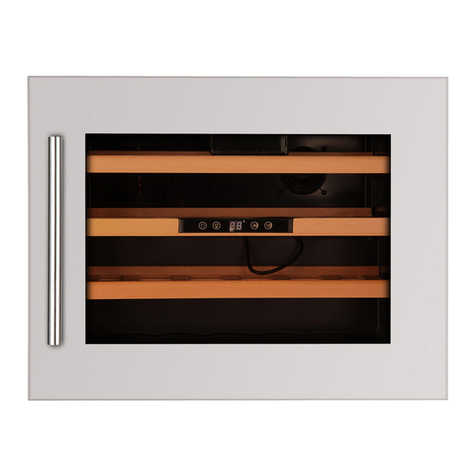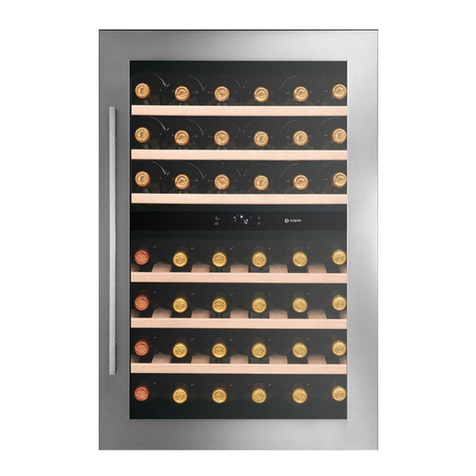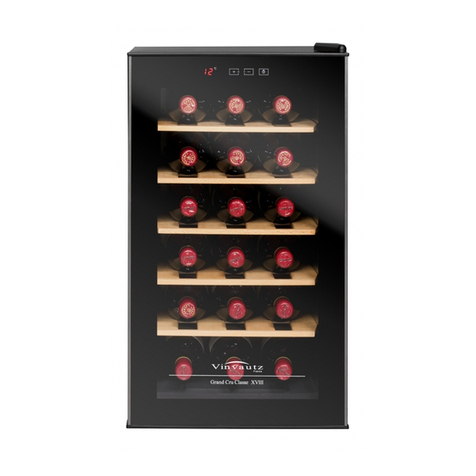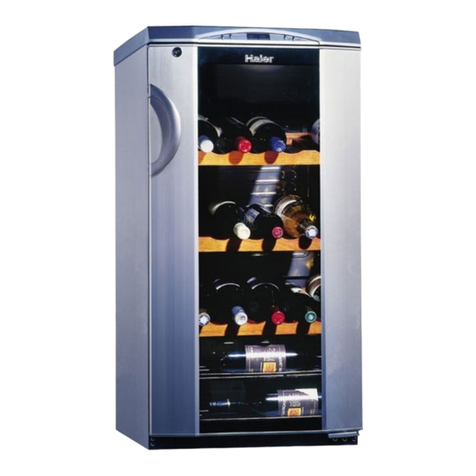
V
ERSION
2 01.03.2017
USER GUIDE
WINE
PC15 Page 7
2. SOME ADVICES
2.1.Wine ageing
The wine must have a place all to itself.
For the conser ation and the ageing of the wine, the environment has to meet certain
conditions.
The stability of the cellar temperature, more so than the temperature itself, is important for
good conservation of the wine.
The central heating pipes and a boiler close by are great enemies of the wine. A good cellar
should be neither too dry nor too humid.
The effect of dry air is treacherous: it dries the cork, causes a considerable evaporation of the
wine through the cork and makes the bottle leaky.
Too much humidity favors the growth of mould on barrels and corks.
A humidity le el of around 70 % is ideal, but for the wine, the humidity level can vary between
40 and 100 % without degeneration.
The cellar must be closed and protected against ibrations. The shelves or racks must be
isolated from all possible sources of vibration and stand on the ground, rather than be attached to a
wall which is more sensitive to vibrations.
In order to age, the wine has to be protected from the light. The cellar must therefore
be dark and the use of light limited to the bare minimum.
When these conditions are met, the wine will keep for a long time. The cellar will ensure a good
maturation and an optimal ageing of the wine.
Wine is not as sensitive as is often thought, it must abo e all be protected from its most
important enemies: sudden temperature changes, light and those who abuse it!
2.2.Rejection room
-The "hot" front of the WINEMASTER® must be inside a room.
The room, into which the exhaust air of the WINEMASTER® goes, must be well entilated, so
that the maximum and permanent temperature does not exceed 35°C, the ideal temperature being
20°C.
Attention, too little room inside the cellar can result in the hot air being emitted by the air-
conditioning, being sucked in again. The outside of the appliance must not be installed in a dip or a
space that is too small.
